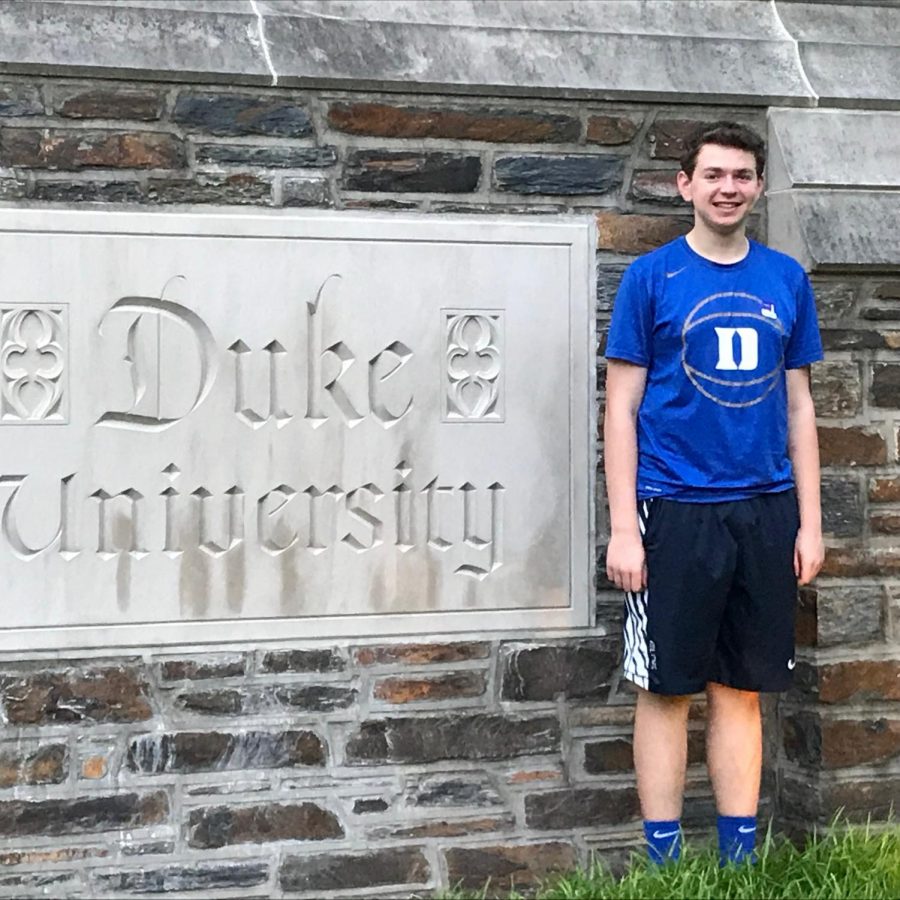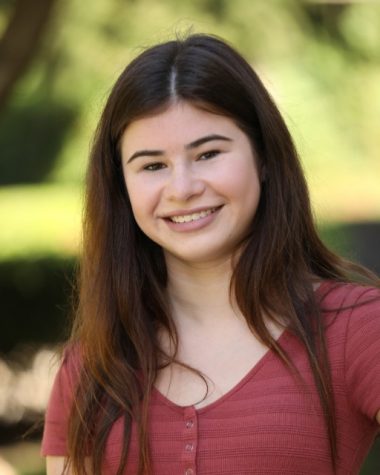College tours in action
photo courtesy of Jeremy Lazoff
Senior Jeremy Lazoff visits Duke University.
September 25, 2019
Between missing school, making hotel and travel arrangements and scheduling official campus visits, college tours can be a hassle. Just ask senior Leah Simon; she has been on 15 of them in the past 12 months.
While Simon has packed many vacations full of campus visits, both she and fellow senior Jeremy Lazoff believe that the number of tours one should go on depends on the individual. Simon decided to go on 15 tours because she wanted to gauge what was available to her and truly see all of her options. Each student has a different list and types of schools they are applying to, though the consensus seems to be that taking 15 tours is a bit too many.
Director of College Admissions Sue Rexford recommends getting a feel for what size school a student prefers by first visiting schools in the metro-D.C. area as there are many different types of colleges available.
“If they want to see what a major big state university looks like that they go visit the University of Maryland at College Park; an urban campus, go visit George Washington; a suburban-type college, visit American University or UMBC; a small liberal arts school, visit Goucher,” Rexford said.
After visiting several local schools to get a feel for what type of campus they prefer, students should then narrow the list down even further and tour more schools, perhaps out of the area, so come senior year, they have an idea of where they would like to apply.
“I think that [spring of junior year] is a good time to go because colleges are still in session and typically they have already had their spring break,” Rexford said. “It is always good if you can to see colleges when students are there because the campus looks very different. If you can’t see a campus when the students are there, the next best thing is to see the campus.”
After going on many tours, Simon and Lazoff have many tips and ideas for students preparing for their first tour.
“Get a notebook, write down notes,” Simon said. “They are all going to blur together, and you want to be able to look back and see what was important to you when you first got there and what ends up being important to you.”.
Lazoff noted that students should always enter a college campus with an open mind and the right mentality.
“Don’t go into [your first tour] with the wrong mindset. I feel like you should always go into it with a positive mindset so that you can judge all schools,” Lazoff said.








